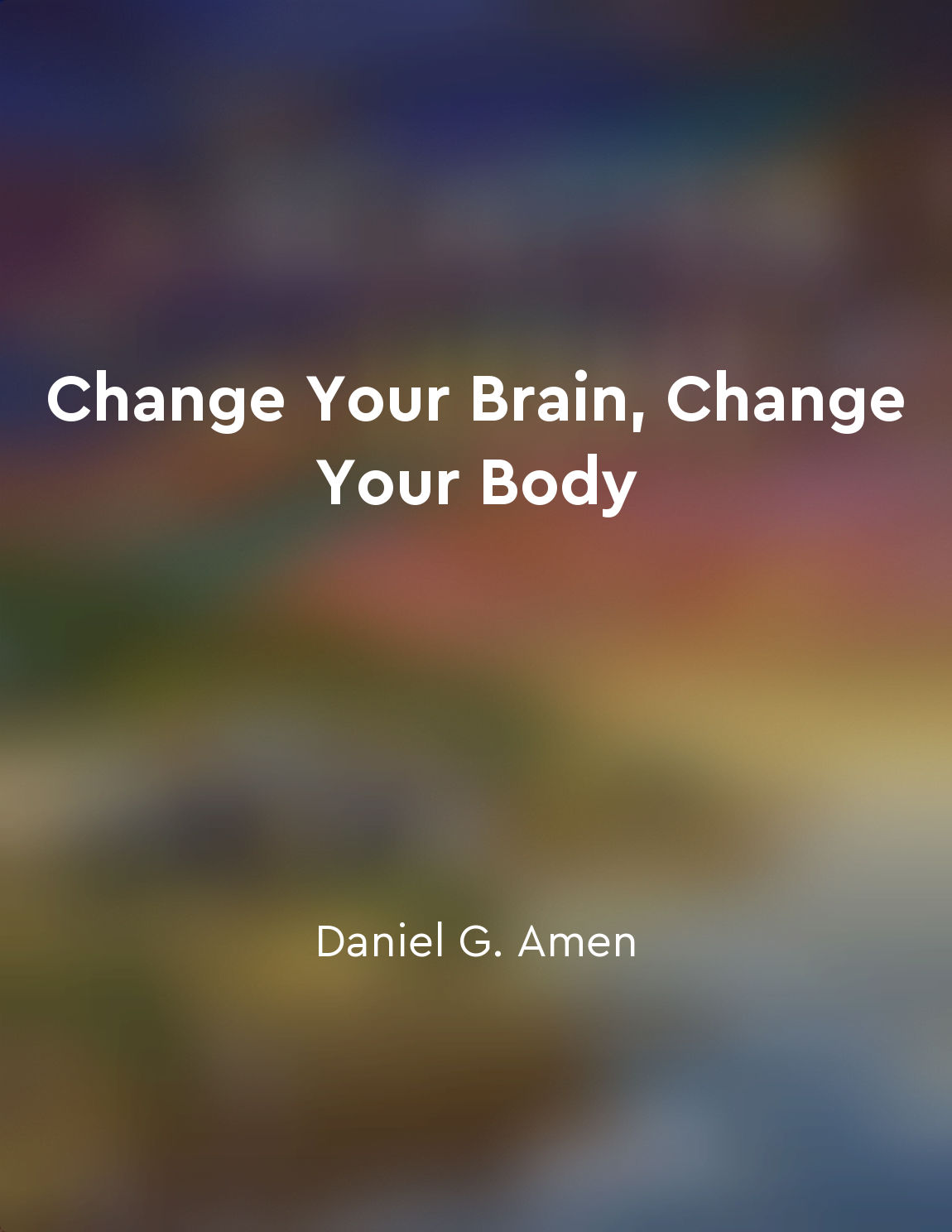Trauma can impact the body as much as the mind from "summary" of Body Remembers Casebook by Babette Rothschild
The impact of trauma is not limited to the mind; it can manifest in the body as well. When a person experiences trauma, whether it be physical or emotional, the body's response is to protect itself through fight, flight, or freeze reactions. These responses are automatic and are meant to ensure survival in dangerous situations. During a traumatic event, the body releases stress hormones such as adrenaline and cortisol, which prepare the body to react quickly. These hormones can cause physical symptoms such as increased heart rate, sweating, and muscle tension. While these responses are helpful in the short term, they can become problematic if they persist long after the traumatic event has passed. The body has a natural ability to heal from physical injuries, but emotional wounds can linger and impact the body in various ways. For example, a person who has experienced trauma may develop chronic pain, digestive issues, or sleep disturbances. These physical symptoms are often a result of the body's ongoing stress response to the trauma. Additionally, the body can store memories of trauma in the form of muscle tension, body posture, and movement patterns. These somatic memories can be triggered by reminders of the traumatic event, causing the person to re-experience the trauma in a physical sense. This can lead to a cycle of retraumatization and further physical symptoms. Addressing trauma requires a holistic approach that considers both the mind and body. By working with a therapist who understands the connection between trauma and the body, a person can begin to heal from the inside out. Techniques such as somatic experiencing, mindfulness, and body-based therapies can help individuals release stored trauma and reduce physical symptoms. It is essential to recognize that trauma can impact the body as much as the mind and to seek support that addresses both aspects of healing. By acknowledging the role of the body in trauma recovery, individuals can work towards a more integrated and sustainable healing process.Similar Posts
Trauma can lead to disconnection from oneself and others
When we experience trauma, our bodies and minds can become overwhelmed by the intense feelings of fear, helplessness, and horro...
Mindfulness practices can enhance body awareness
One powerful way to deepen our connection to our bodies is through mindfulness practices. By practicing mindfulness, we can cul...
Cognition involves mental processes like memory and problemsolving
Cognition encompasses a wide range of mental processes that allow us to understand and interact with the world around us. One k...
Victims of abuse may feel trapped in their situation
The victims of abuse often experience a sense of entrapment. They may feel as though there is no way out of their situation, no...
The role of medication and therapy in treating bipolar disorder
Medication and therapy play crucial roles in managing bipolar disorder. Medication can help stabilize mood swings and prevent e...
Gratitude and perspective lead to a more fulfilling life
Gratitude and perspective are essential elements in living a fulfilling life. When we cultivate gratitude, we open ourselves up...
Trauma can lead to a disconnection from the self
When we experience trauma, our sense of self can become fragmented and disconnected. This disconnection can manifest in various...
Trauma therapy should empower clients to set boundaries
Setting boundaries is crucial in trauma therapy. Many clients who have experienced trauma have a difficult time establishing bo...
Understanding and managing emotions leads to a more fulfilling life
Understanding and managing our emotions is a crucial aspect of our overall well-being. Emotions play a significant role in shap...

Brain health impacts overall wellbeing
One of the most crucial concepts to understand when it comes to improving your overall health is the significant impact that br...
